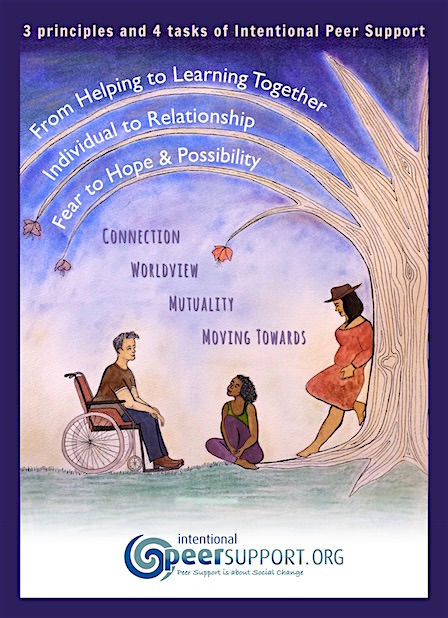Peer Work
Janel Gibson is a passionate and experienced peer support worker. She provides invaluable 1:1 peer support and facilitated group peer support sessions. Janel is dedicated to supporting individuals and organizations in their consultation and co-design practices. With her expertise, she offers In-session and Post-session peer support,
both In-person and Online to ensure the success of these practices.
Get to know Janel and discover how she can walk alongside you and your community.
What is Peer Work?
A Peer Support Worker is a person who identifies as having a lived/living experience of mental health challenges, who walks alongside others who may experience similar challenges. The peer support worker’s role is to assist people with finding and following their own recovery paths, without judgment, expectation, rules, or requirements. They provide non-clinical, strengths-based support and are “experientially credentialed” by their own recovery journey (Davidson, et al., 1999).
Peer support offers a level of acceptance, understanding, and validation not found in many other professional relationships (Mead & McNeil, 2006). By sharing their own lived experience and practical guidance, peer support workers help people to develop their own goals, create strategies for self-empowerment, and take concrete steps towards building fulfilling, self determined lives for themselves.
Janel has experience co-designing and delivering a peer support program. Janel has completed Intentional Peer Support Training (IPS).
If you would like peer work values incorporated into your Arts Therapy session, speak to the therapist about this during a Discovery Call.
Intentional Peer Support (IPS)
"Peer Support is about social change." – Shery Mead, founder of Intentional Peer Support (IPS).
Intentional Peer Support (IPS) is a practice of using your lived experience to walk alongside others. IPS is guided by 3 principles and 4 tasks (see image below). Janel has completed training in Intentional Peer Support.
"IPS is unique from traditional human services because:
-
IPS relationships are viewed as partnerships that invite and inspire both parties to learn and grow, rather than as one person needing to ‘help’ another.
-
IPS doesn’t start with the assumption of a problem. With IPS, each of us pays attention to how we have learned to make sense of our experiences, then uses the relationship to create new ways of seeing, thinking, and doing.
-
IPS promotes a trauma-informed way of relating. Instead of asking “What’s wrong?” we learn to ask “What happened?”
-
IPS examines our lives in the context of mutually accountable relationships and communities — looking beyond the mere notion of individual responsibility for change.
-
IPS encourages us to increasingly live and move towards what we want instead of focusing on what we need to stop or avoid doing."
- Intentional Peer Support Website
You can read more about Intentional Peer Support on their website by clicking here.
Other Resources
Peer Support (which is a part of the Lived Experience Workforce) has been recommended throughout the Victorian Royal Commission into Mental Health, (specifically recommendation 28 and 29) as a necessary form of support in the mental health system. This is as a result of countless research supporting the value of peer work.
You can read the Final Report for Recommendations by clicking here.
For a brief overview of peer support see this flyer by SAMSA by clicking here.
For more research on peer support and the Lived Experience Workforce, see the Centre of Excellence in Mental Health by clicking here.
